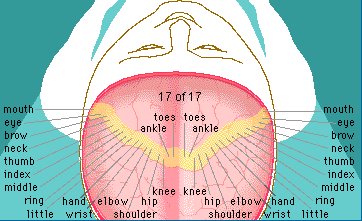Severe stress from emotional trauma has been discovered to damage the part of the brain that is crucial to memory, the hippocampus. The hippocampus is responsible for holding short-term memories and thus is necessary in the learning process.
A study, reported in The American Journal of Psychiatry in 1995, was lead by Dr. Douglas Bremner and Dr. Dennis Charney at the Veterans Affairs Medical Center in West Haven, showed a physical alteration, an 8% reduction in the volume of the right hippocampus compared with those who suffered no symptoms. In addition, the study showed survivors of childhood abuse performed at levels averaging 40% lower on a test of verbal memory than did people of comparable age and education.
Dr. Bremner said, "the memory of those with post-traumatic symptoms is particularly faulty for words, like grocery lists or phone numbers. The study found no deficiency in the trauma victim's overall IQ scores, however."
The shrinkage of the hippocampus may be due to the effects of heightened levels of cortisol, a steroid hormone secreted by the brain in response to emergencies. Dr. Bremner said "Cortisol can be toxic to the hippocampus." Yet, there were conflicting reports in which cortisol was also shown to be at low levels in concentration camp post-traumatic survivors. "There are mixed findings on cortisol levels in trauma victims. . . biologically speaking, there may be different kinds of post-traumatic stress."
http://www.brainchannels.com/evolution/brainabuse.html
Wednesday, July 4, 2007
Subscribe to:
Post Comments (Atom)

http://www.windyweb.com/stop.htm














No comments:
Post a Comment